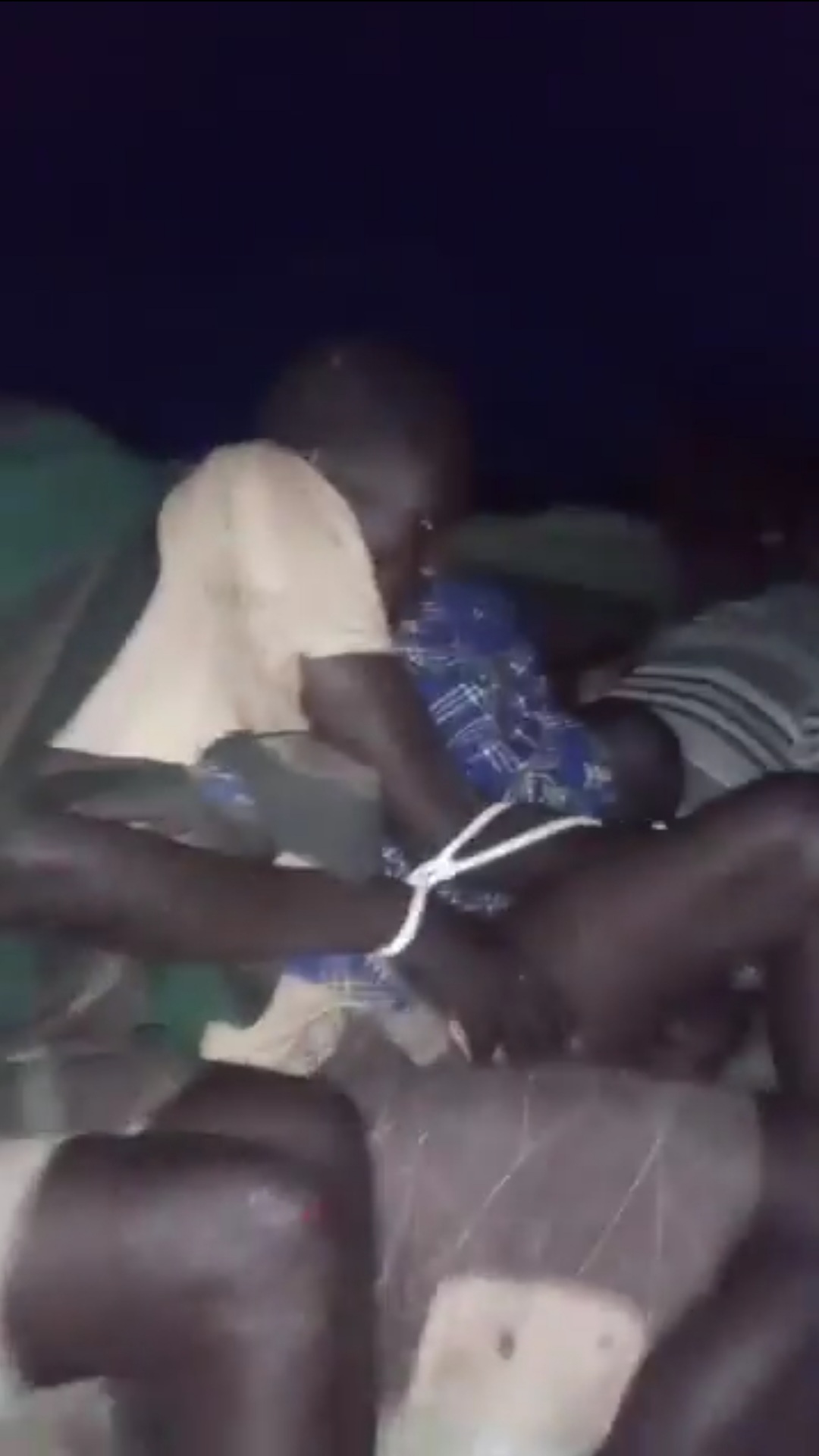On April 19, 29-year-old opposition member of Parliament Francis Zaake, a fierce critic of Museveni’s, hired motorcycle taxis to distribute bags of rice and sugar to his destitute constituents. “I could not stand starving mothers and their children camping outside my gate every day for help,” he told reporters.
That evening, Zaake heard commotion outside his house. He was taking a shower, and as he rushed out to put on some trousers, police and army officers broke down his bedroom door and dragged him into a waiting police vehicle. On the way out, they ransacked his house and made off with about $4,000 in cash, according to Zaake and his wife. For the next four days, Zaake said, he was ferried from one detention center to another and kicked, punched, and beaten with sticks while being subjected to periodic interrogations. A stinging substance was poured into his eyes, rendering him temporarily blind—his sight only returning weeks later. At one point, his upper arms were tied behind his back in a position known as the “three-piece tie,” a notorious Ugandan torture method that can damage the shoulders and breastbone. He was then suspended, face down between the seats of a speeding pickup truck, enduring excruciating pain as his body swung to and fro.
Zaake’s captors, who spoke the language of Museveni’s home area, made tribalist slurs against his ethnic group, stepped on his head, and ordered him to swear allegiance to Museveni and his wife, Janet.
While Zaake was in custody, his wife, lawyers, and colleagues were not permitted to see him. He, however, did meet dozens of other Ugandans who had been assaulted and detained for supposed Covid-19-related offenses. University law student Ronald Mark Kizito claimed he was beaten by members of Uganda’s Local Defense Unit—a hastily trained auxiliary force with “shoot to kill” orders—for leaving his lights on. The police say he was beaten by acquaintances for trying to rape a girl and denied that LDU officers had anything to do with it. A woman died of her wounds after being shot by police for supposedly violating the Covid curfew. Another woman was packing up her fried chicken stall in order to meet the curfew, when security men arrived and doused her with hot oil from her own saucepan.
Unable to see, stand, or even sit up, Zaake was eventually delivered to a hospital, where he remained under armed guard, charged with defying presidential orders. He had to be carried to his court hearing, where he lay prostrate on a bench, moaning in agony.
Parliament was incensed. Speaker Rebecca Kadaga ordered Internal Affairs Minister Jeje Odongo, who oversees the police, to explain what had happened. The following day, ruling party MP Obiga Kania presented the results of the ministry’s investigation to Parliament. Zaake had injured himself deliberately by banging his body against the side of the police vehicle, Kania declared. He then suffered further injuries in a “scuffle” when he tried to resist being moved from his cell by clinging to the bars.
No Ugandans I know find this credible, and on May 4, five Ugandan opposition leaders wrote to UN Secretary General António Guterres urging him to call on the UN Security Council to suspend all but the most essential humanitarian aid to their country. In Uganda’s fractious political landscape, the five signatories—including popular MP and musician Bobi Wine, whose torture in detention made international headlines in 2018—normally agree on very little. But they do agree that much donor funding to Uganda does more harm than good. They warned Guterres that unless foreign aid is conditioned on strict human rights criteria, it will be used to rig Uganda’s forthcoming election, expected in early 2021, and further militarize the country. A group of civil society activists—including me, the only non-Ugandan—wrote to the IMF a few days later, endorsing this view.
Original article in the Nation by Helen Epstein
